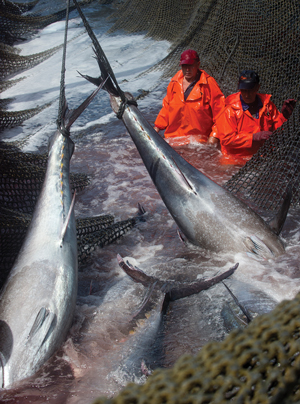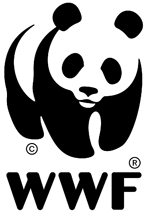Incentivizing Sustainable Fishing on the High Seas
Results from the Global Think Tank now available on WWF webpage
2 May 2019
Fast-moving and migratory fish species, such as tuna and marlin, can swim thousands of miles between countries and across the open ocean. Fishing these species on the high seas, or areas beyond national jurisdiction (ABNJ), generates economic and social value, and there is the potential to generate even greater benefit. But a lack of national jurisdiction in international waters presents ecological and political challenges for the conservation and management of the marine environment, specifically fish stocks.
 ©WWF |
A Global Think Tank led by World Wildlife Fund (WWF) as part of the Common Oceans ABNJ Ocean Partnerships Project—an initiative funded by the Global Environment Facility and implemented by the World Bank—was tasked with identifying a new theory of change that accounts for gaps in the governance of high seas fisheries.
In November 2016, WWF convened the first meeting of the Global Think Tank comprised of a diverse group of authorities on the tuna industry, as well as financing, economics, international law, management of tuna fisheries, and ecology of highly migratory fisheries. This league of 13 experts was tasked with developing a new vision for managing fishing on the high seas that utilizes incentives as a mechanism for improving practices.
The Think Tank had two main tracks of work—seek out information and provide practical, scalable advice for fishery managers and industry. Over the course of 3 years, the Think Tank held a series of facilitated meetings where experts exchanged and reviewed findings, debated ideas and ultimately agreed upon a vision for management of highly migratory fisheries with a high seas component.
Information for the Think Tank came from the development of several original business cases in the Eastern Pacific, Western Central Pacific, the Bay of Bengal, Western Central Atlantic and Caribbean. The group also provided technical advice to those projects testing business incentives as a tool for enhancing sustainability in the tuna and billfish fisheries in developing regions. At the same time, these experts evaluated the performance of current on the ground programs.
"The analysis and advice provided by the Think Tank is useful for a diverse group of stakeholders in the migratory fisheries space, from industry to governments", said Vishwanie Maharaj, Lead Economist, Oceans, WWF.
Learn about the lessons learned and results achieved, and access all the reports and publications developed by the Think Tank on the newly released Incentivizing Sustainable Fishing on the High Seaspage on the WWF website.
For further information, please contact:
Dr Vishwanie Maharaj – Lead Economist, Oceans, World Wildlife Fund-US | [email protected]
 |
 |
 |

